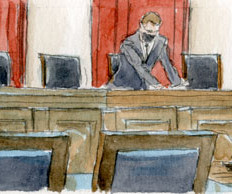Spooky Torts: The 2023 List of Litigation Horrors
JonathanTurley
OCTOBER 30, 2023
Here is my annual list of Halloween torts and crimes. Halloween has everything for a torts-filled holiday: battery, trespass, defamation, nuisance, product liability and more. However, my students and I often discuss the remarkably wide range of torts that comes with All Hallow’s Eve. In another June 2023 decision in Munoz v.














Let's personalize your content